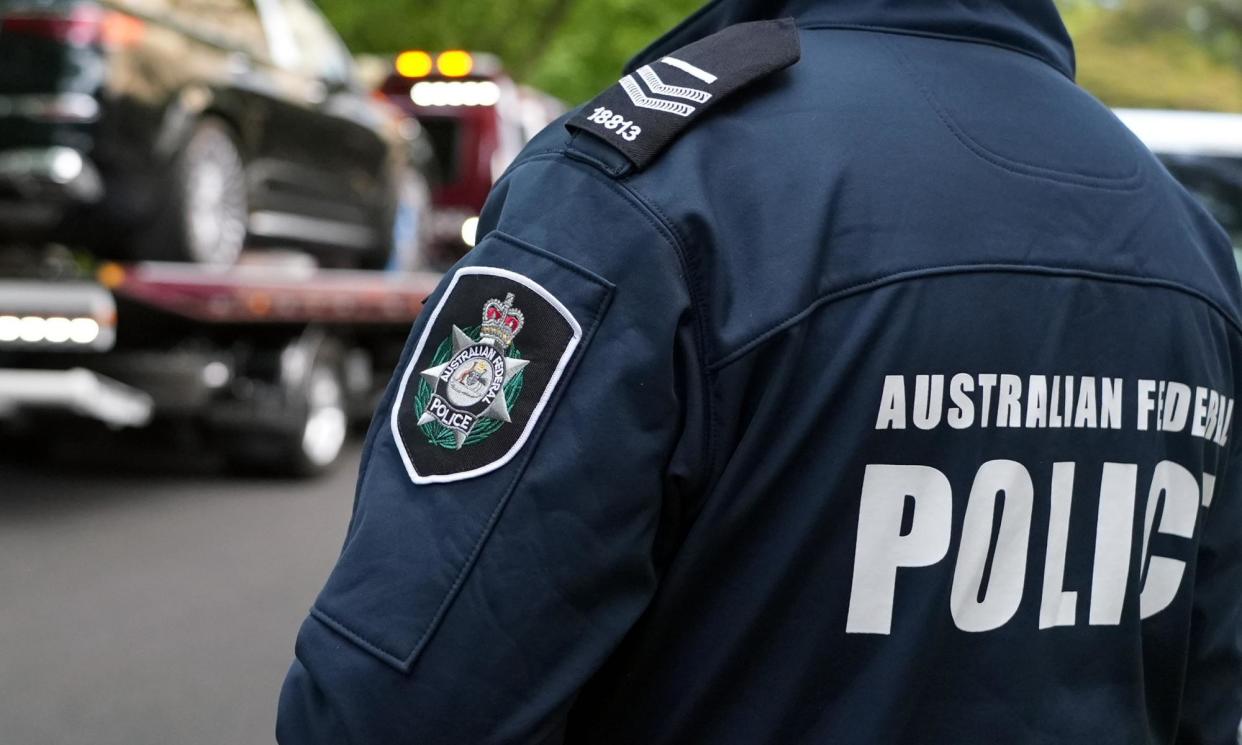AFP counter-terrorism operation that targeted 13-year-old with autism cost more than $500,000

An Australian federal police counter-terrorism operation targeting a 13-year-old boy with autism cost more than $500,000, Guardian Australia can reveal.
Documents provided under freedom of information laws show the total cost of Operation Bourglinster, the AFP investigation into a boy known as Thomas Carrick, was $507,087. No further breakdown of the cost was provided.
Related: Why police are accused of radicalising an autistic teenager – podcast
The Victorian children’s court found that police encouraged Thomas in his fixation on Islamic State during an undercover operation after his parents sought help from the authorities.
Thomas was later charged with terror offences after a magistrate found an undercover officer “fed his fixation” and “doomed” the rehabilitation efforts of the boy and his parents.
On 17 April 2021, his parents went to a police station and asked for help because Thomas was watching Islamic State-related videos on his computer and had asked his mother to buy bomb-making ingredients such as sulphur and acetone.
Thomas was investigated and charged with two terror offences by the Joint Counter Terrorism Team (JCTT), which comprises Australian federal police, Victoria police and Asio members. He was the youngest person ever charged with those offences, the court found.
It granted a permanent stay on the charges in October last year after making grave findings about the conduct of officers.
“The community would not expect law enforcement officers to encourage a 13- to 14-year-old child towards racial hatred, distrust of police and violent extremism, encouraging the child’s fixation on Isis,” Magistrate Lesley Fleming said in the decision, first revealed by Guardian Australia.
Thomas, an NDIS recipient with an IQ of 71, was first reported to police by Victoria’s Department of Health and Human Services (DHHS) and then by his parents because of his fixation with Islamic State, which included him accessing extremist material online and making threats to other students.
He spent three months in custody before he was granted bail in October 2022, after an earlier bail was revoked because he failed to comply with conditions.
The AFP released 41 pages of documents to Guardian Australia under FoI laws earlier this month. Some of the documents were redacted and others were excluded from release.
Part of the reason for documents being excluded or redacted was that the operation remained under review, the AFP noted in its FoI decision.
The documents include a redacted “backpocket brief”, designed to give an overview of the operation including a chronology.
“Since July 2021, the AFP has commenced investigations and conducted operational activity against more than 10 individuals that were 16 years old or younger, with the youngest being 12 years old,” the undated brief notes. “Of these, approximately 50% of the individuals have been charged with either commonwealth or state based offences.
“Some commonalities identified between these investigations include diagnosis of a neuro-diverse or mental health condition, being raised in a disruptive, unstable or harmful environment, and experiencing social problems throughout their school life.”
The brief also said that extremist groups were deliberately targeting young and vulnerable individuals for radicalisation. It said the process used by extremists to radicalise youth often differed from adults, and this was due to the unique risk factors and vulnerabilities associated with childhood and adolescence.
The terror threat level was raised from possible to probable on 5 August.
Redacted sections in the documents released under FoI includes material under the subheading “if asked about safeguards and governance processes for investigations involving youth”.
The documents also include an email sent by the deputy commissioner, Krissy Barrett, to Counter Terrorism and Special Investigations on 15 February, after Guardian Australia revealed the undercover operation, praising the work of undercover online operatives whose work had been heavily criticised in Thomas’ case.
“It is really important to note that this was a very difficult and complex investigation for everyone involved, and one which threw up many challenges,” she said in the email.
“I recognise and thank everyone involved for their tenacity, professionalism and commitment to duty.
“I also use this opportunity to acknowledge the fantastic work that our covert online operatives do, under very difficult circumstances, to keep the community safe.”
Answers to questions on notice from Senator David Shoebridge to the commonwealth Director of Public Prosecutions also revealed that the CDPP spent a further $72,614 in external costs in relation to the case.
The AFP’s deputy commissioner, Ian McCartney, told the Senate earlier this year that a range of reviews were under way in relation to the case, but that he would authorise a similar operation again.


